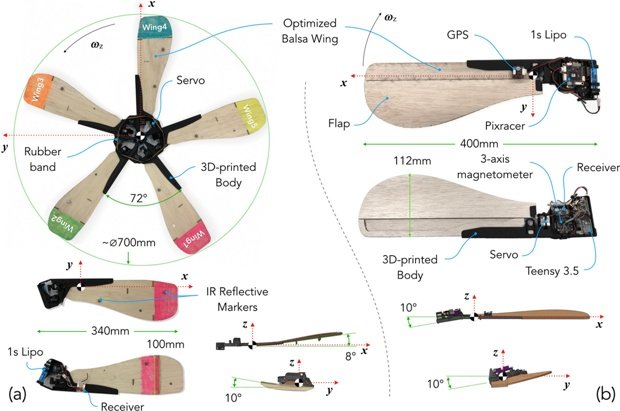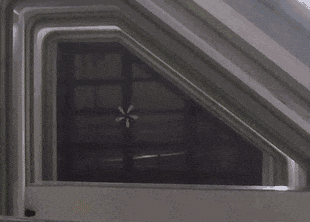Singapore engineers have developed a drone capable of disintegrating into five separate guided drones in flight. Their design resembles a maple crown, so that they are able to unwind independently in the oncoming air flow and significantly slow down the fall. The servomotor allows you to quickly change the shape of the wing during rotation and thereby directing the drone to the right place.
In some situations, for example, after natural disasters, it is not the exact placement of various sensors or transmitters at specific points, but their mass distribution throughout the territory. For example, IBM recently tested a system that is potentially capable of quickly reestablishing communications after infrastructure damage due to a hurricane or other natural disaster. It consists of a set of devices with support for Wi-Fi or LoRa standards, forming a single network with a mesh topology, through which residents can connect with rescuers. Placing many of these sensors manually is long and expensive, so the developers suggested dropping them from helicopters or drones. Shaohui Foong and his colleagues at the Singapore University of Technology and Design developed a simpler system that allows you to distribute light loads weighing several tens of grams over a relatively large area, and not randomly, but controlling the place of their fall. The drone created by engineers consists of five separate devices, having the form of an asymmetric wing, similar to a maple wing, with which trees distribute their fruits over long distances. Asymmetric design provides autorotation for such a wing, which significantly slows the fall.  Source photo
Source photo
Five separate drones are combined into a large apparatus using a hitch mechanism. By lowering the large drone to the desired height, the mechanism simultaneously releases all five small drones and they continue the controlled fall independently. At the base of the wing of each small drone there is a control board with sensors, a battery and a servomotor. Thanks to him, the fall of the drone can be controlled. To do this, the motor can deflect the control unit from the wing by several degrees in two planes. If such deviations occur quickly and at certain intervals within each cycle of rotation, the drone will shift in a certain direction.
At the end of the demo video, you can see one of the tests, during which the geksakopter at high altitude released three drones. At the initial stage of the flight, they did not receive commands and flew in a single group. After that, each of the devices received a command to maneuver in a certain direction and the drones began to move in different directions.
